'I hope I'm wrong': Family's fight for two boys after devastating double diagnosis
Two young boys diagnosed with an incurable disease face the prospect of losing the ability to walk by the time they are teenagers.
But their determined parents are doing all they can to give both their sons a full and active life.
Riley, 8, and Tarek, 4, were both diagnosed in 2016 with Duchenne Muscular Dystrophy (DMD), a disease which affects all the muscles in the body, including the heart.
The disease typically affects boys, although girls can be carriers, and by the time males hit their teens, they have usually lost the ability to walk.
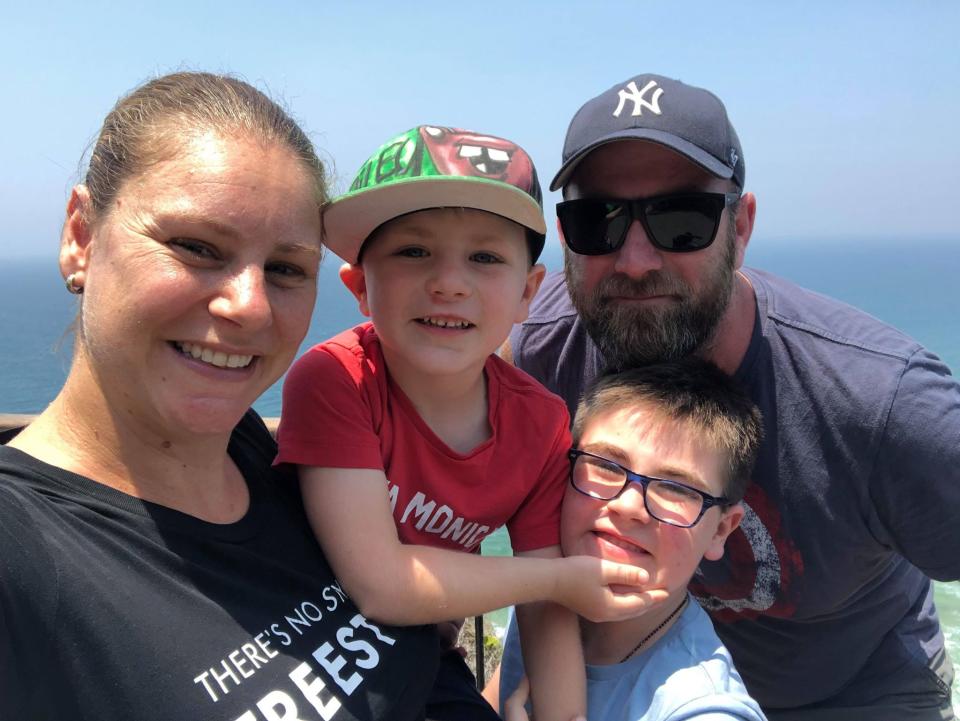
Riley was four-and-a-half, when he was diagnosed with DMD, mother Vanessa Brown told Yahoo News Australia.
Initially the family wanted to get Riley checked out because he was always walking on his toes and Ms Brown assumed he would just need to see a physiotherapist.
“The paediatrician was aware of the other symptoms [of DMD], with enlarged calf muscles and struggling to stand up from the floor, those impaired gross motor skills – she sort of knew straight away,” Ms Brown said.
“Her words to me were, ‘I think I know what it is, I hope I’m wrong, but I don’t think I am’.”

Mum carrying the gene causing DMD
Following Riley’s diagnosis, Ms Brown found out she was a carrier of the gene which causes the disease.
Having just given birth to Tarek, she and her husband, Nathan, needed to know if her youngest son also had DMD.
“It can just be a random mutation that just sort of happens, which is what happened with me, so it was that shock as well as going your whole life not knowing that you have carried this gene,” Ms Brown said.
“All of a sudden, you’re told they won’t be able to walk by the time they’re in their early teens and it [DMD] drastically reduces their life expectancy. There’s not many that live beyond their mid-20s.
“I don’t even know how we dealt with it, the first year was a real blur.”

While the diagnosis devastated the Sydney family, both boys have grown to be kind and affectionate. Riley has found comfort in playing video games, while Tarek enjoys playing with his toy cars.
Both boys enjoy swimming and Ms Brown says this is the best kind of exercise for them. Earlier this year, Riley got a chance try horse riding and play power-wheelchair soccer.
“He absolutely loved both of them and we were happy to finally have found a team sport for him to take part in,” Ms Brown said.
“But sadly due to the coronavirus, these activities were cancelled for the time being.”
Having a second baby, Ms Brown said she assumed life would return to normal, but the grief and stress of looking after her sons meant she didn’t go back to work as a teacher after her maternity leave was up.
While her husband battles similar emotions, he continues to work as a tradesman.
Ms Brown explains she does not know if you ever completely come to terms with a diagnosis like this, but she said it gets both easier and more difficult as time goes on.
“It’s the unknown and you’ve just got to sort of figure it out,” she told Yahoo News Australia.
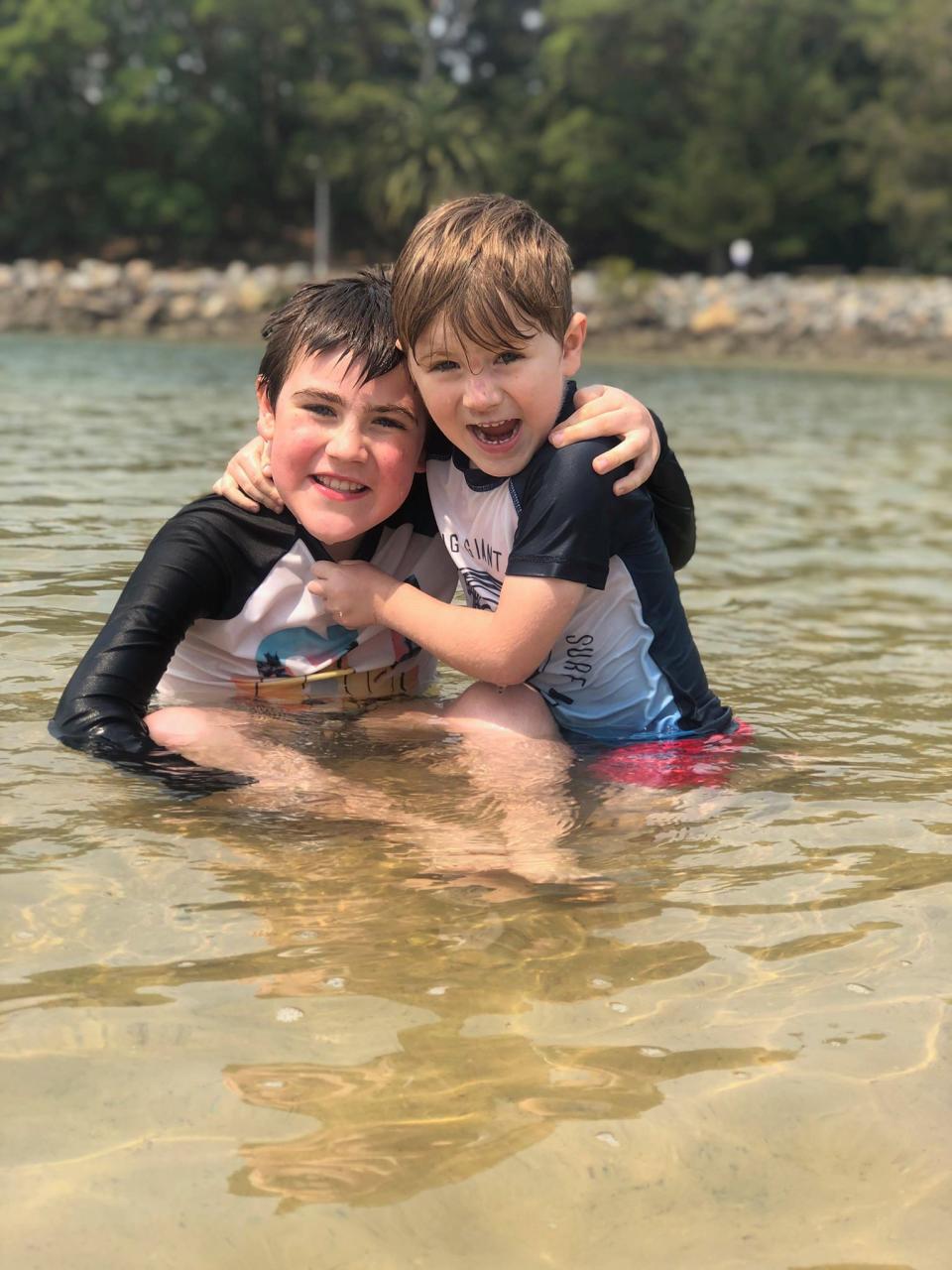
Family raising funds for a specialised car
Both Riley and Tarek have to go to many doctors appointments and see therapists, while Ms Brown and her husband try to give their children everything they need.
The boys need power wheelchairs, as they don’t have the strength in their arms to push themselves, because of the wheelchairs, the family needs a car which is accessible.
While NDIS funds the power wheelchairs and vehicle modifications, it doesn’t cover the actual vehicle.
The family has now set up a GoFundMe to help get together the money to buy a vehicle which is appropriate for their needs, especially with Riley relying more on his wheelchair.
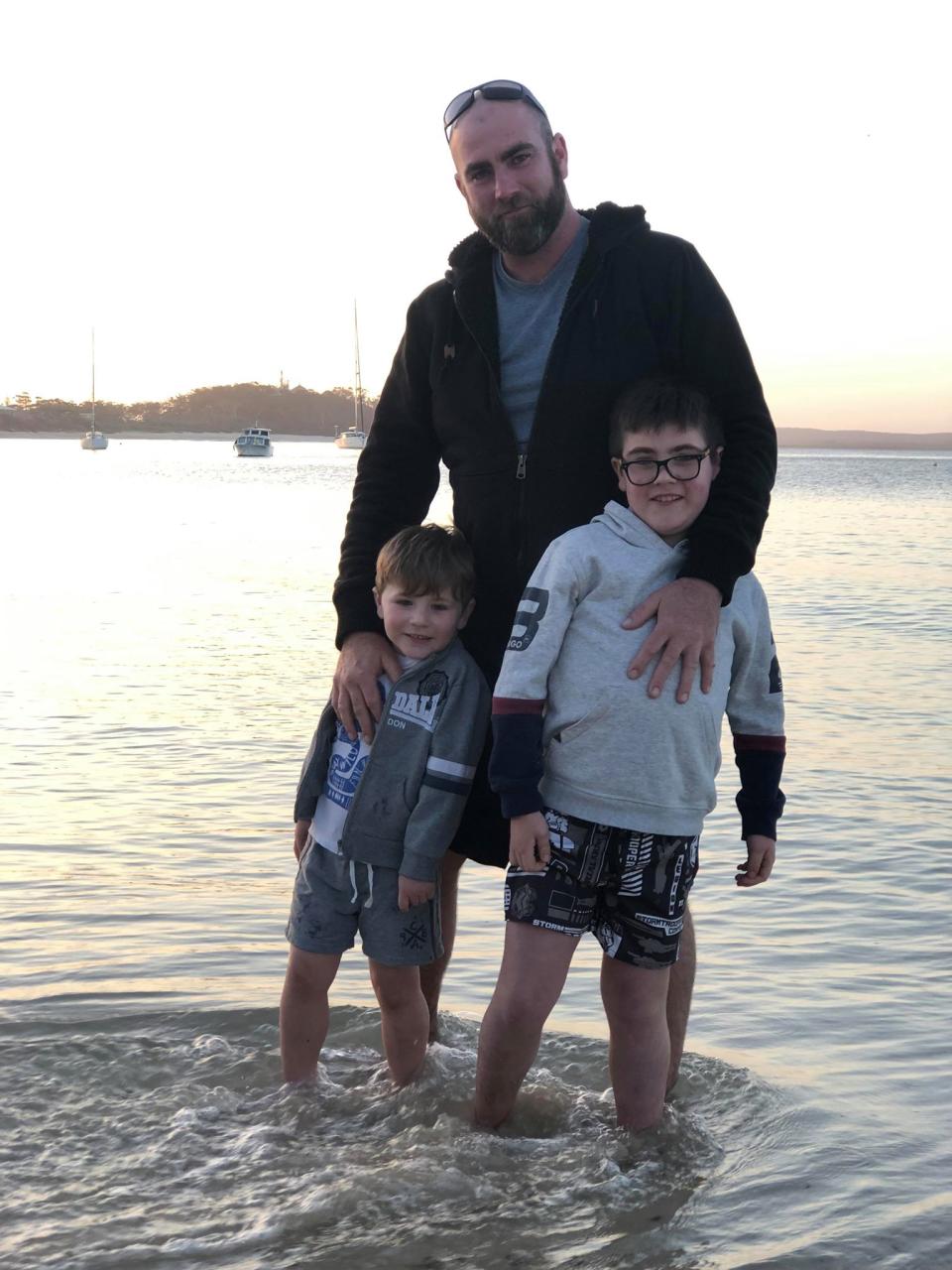
An accessible vehicle would allow the family to still live life, but also make their life much easier.
“It would just be so we can still get out and do things as a family and we can keep them active in the community and get to-and-from all the appointments,” Ms Brown said.
Ms Brown used to reject other people calling her “strong”.
“It took me a long time to accept people saying that, because I felt like I’m not strong,” she admitted.
“You’d give anything to not have to go through this, but it was that realisation that it’s not so much that I’m strong, it’s that you have to keep going no matter what because you do it for your kids.”
No cure for DMD but research continues
There’s no cure for DMD and Ms Brown says most of the research is done overseas which sometimes makes it hard to gain access to the studies being conducted.
“They do sort of feel like they’re on the breaking point of trying to find something that will help the boys, so we hold on to that hope and we sort of do what we can,” Ms Brown said.
However, there is money being raised in Australia and the family does what they can to try and raise awareness and money for clinical trials.
Just early this year, Ms Brown completed a 180km walk over nine days to raise money for the Save Our Sons Duchenne Foundation and raised over $10,000, Mr Brown also completed the walk last year.
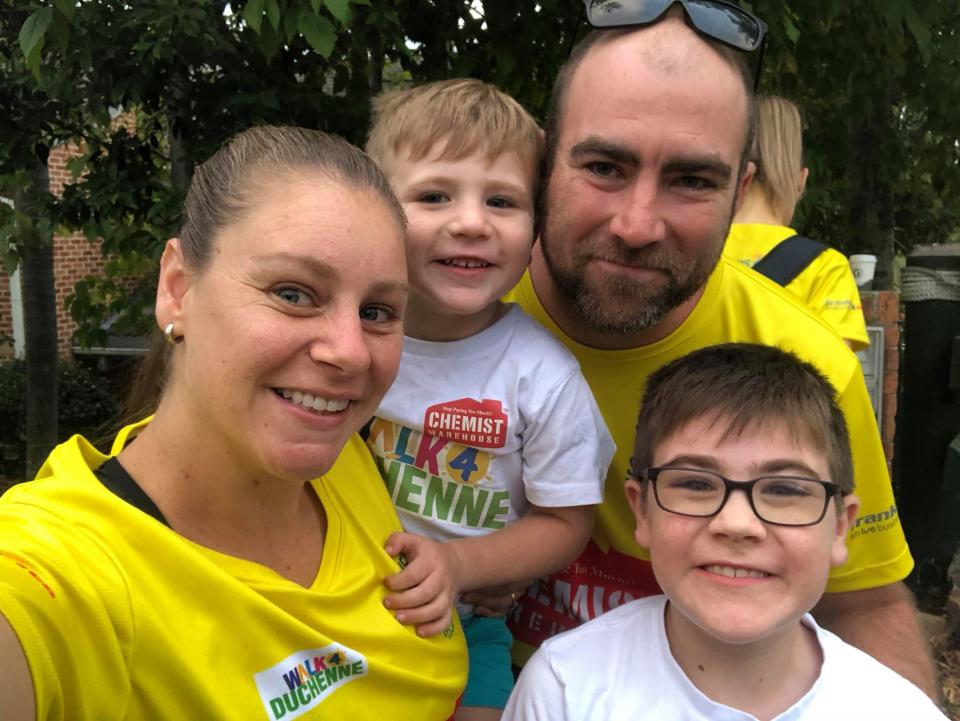
“We do it [the walk] as much as we can to help the foundation, and it’s kind of hard that we now need to raise money for ourselves and I don’t like having to do that because I want to try and help the medical research,” Ms Brown said.
“But I’ve had to realise we need to do this for the boys.”
Ms Brown said the walk was by no means easy, but she said she would do it again in a heartbeat.
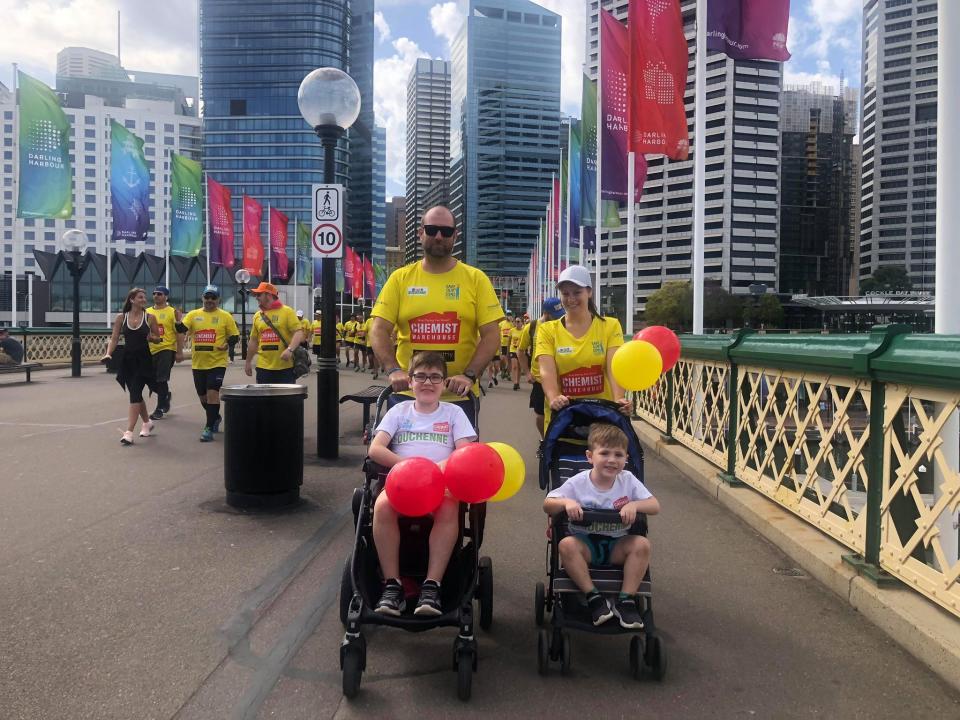
“As I said, you do it for your kids and I did struggle a lot on the walk and had my calf muscle seizing up and a lot of people said to me, ‘Just have a bit of a break and sit down’,” she said.
“For me, having kids with the condition, they don’t have the option to say, ‘I don’t feel like having Duchenne today’, their legs are always tired and it’s always hard for them to get up and walk, so I wanted to keep on going and get it finished, because that’s what they do all the time.
“They do that every day.”
Do you have a story tip? Email: newsroomau@yahoonews.com.
You can also follow us on Facebook, Instagram and Twitter and download the Yahoo News app from the App Store or Google Play.




